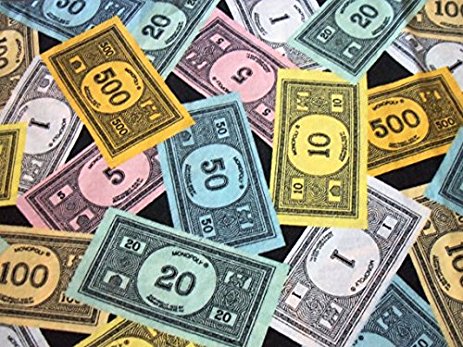Is This Game Too Tough For My Child?
A few weeks back, I did a celebratory Q&A for my first 1000 subscribers. I had such a fun time writing my answers that I kept an eye out for other questions about games, math, and parenting.
Well, last weekend I was talking with another parent about birthday presents when they hit me with a question I just had to answer in the newsletter. So here we go!
Alison asks:
I've noticed that you always seem to recommend games to kids who are on the younger side: the box recommends players 8 and older, but you'll recommend it for 5 or 6 year olds. Why is that? Won't the kids get frustrated by a game that's too hard for them?
This is a great point! I do tend to round down when recommending games. I'll admit that part of this is because I tend to try out games with my own kids, who are 6, 3, and 0.5, respectively.
But the reason I recommend games is that I believe that games can be fun, exciting, and educational, even if your kids can't play the full game unassisted.
If your kids are interacting with a new idea in a way that is exciting or perplexing, that's all you need! My six-year-old son has never finished a single game of Monopoly, but he has definitely stared at his pile of cash and wondered how to purchase St. James Place for $160. What bills should he give the banker?
Sure, he loses interest in the game after 20 or 30 minutes. But for those minutes, he was thinking mathematically and strategically, which is the whole point. (And by the way, he did me a favor by bailing on Monopoly. I know it's a classic, but it is utter drudgery to get to the end of that game. I'll write about Monopoly someday, but ugh...)
So here are three quick tips for making games accessible to younger players.
Play on Teams
I often draft my 3-year-old daughter onto my "team," where she is in charge of moving the pieces (counting) and drawing and discarding cards (patterns and routines) while I make most of the strategic decisions. This works even better when two adults can team up with two kids, so the younger child doesn't feel like they are being babied.
While you're on a team with a child, make sure you think out loud and ask for advice. Where should we move next? What do we hope to roll? What do you think we should do? Make sure you try to follow your child's advice, even if it's not the optimal strategy; otherwise, they'll catch on quickly that you're management and they are labor.
Some of my favorite games are cooperative games like Forbidden Island and Pandemic, where all players are on the same team, trying to beat the game itself. My son is definitely not old enough to play Pandemic on his own, but he can reason his way through some decisions if I prompt him with the right questions. Plus, he just loves flipping the cards and placing the disease cubes everywhere (I know it sounds weird, but this game is amazing. Trust me).
Play Face Up
Another great method I mentioned in my last post on Rummikub is to play your board games face up.
This is a classic method for teaching new board games, but I recommend it even past the first couple of games. I think kids get a lot of insight into how to think strategically about a game by looking at their own cards or pieces and discussing their options with older siblings and adults. Similarly, if you think out loud about your choices, they can pick up little mathematical insights along the way.
Let's say you want to play Scrabble (affiliate link). You could play the traditional competitive way, or you could play face-up and talk through each person's turn, trying to maximize the score on each turn. At the end of the game, who wins? Your child, who spent the entire game engaged rather than waiting for their turn while you pore over your letters endlessly.
Take Turns - No Speed Games
I've recommended several games in the past, such as SET and Tenzi, that have a speed component. Simply put, I'm not a fan of that sort of rule. Inevitably, the older sibling is going to win, and then you've got a whole mess to handle.
Instead, I recommend that you eliminate the speed component and let everyone take turns. In Tenzi, this means that every player gets the same number of rolls. In SET, each person gets a chance to identify a set before the other players pitch in to help. Eliminating the time component is a great way to get kids focused on the mathematical ideas and not on the stress of being fastest.





